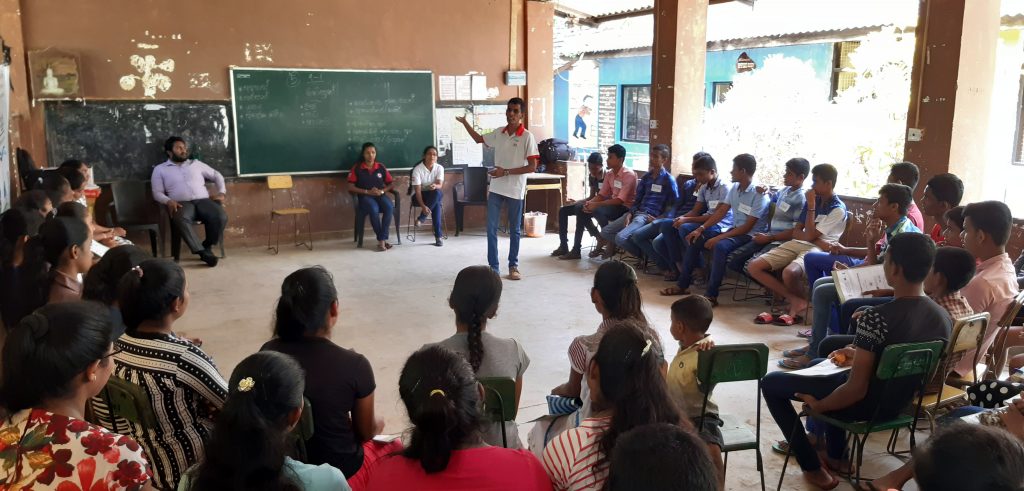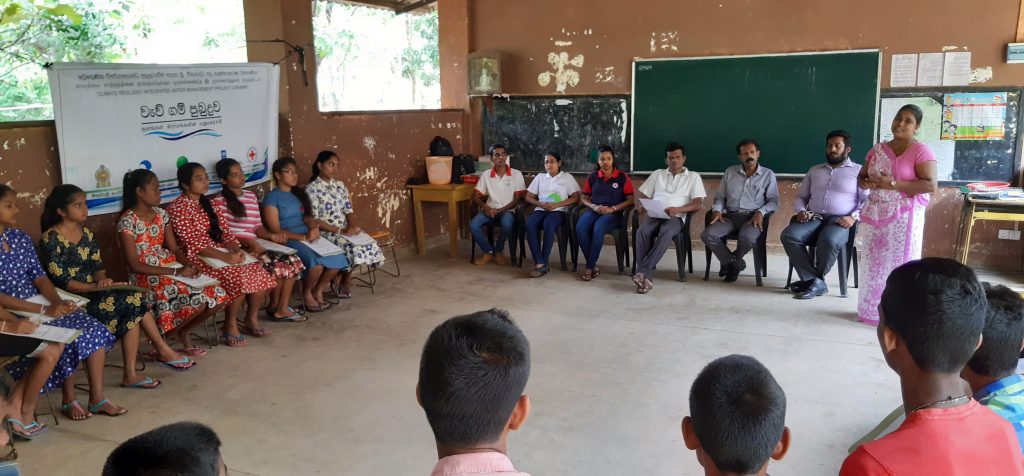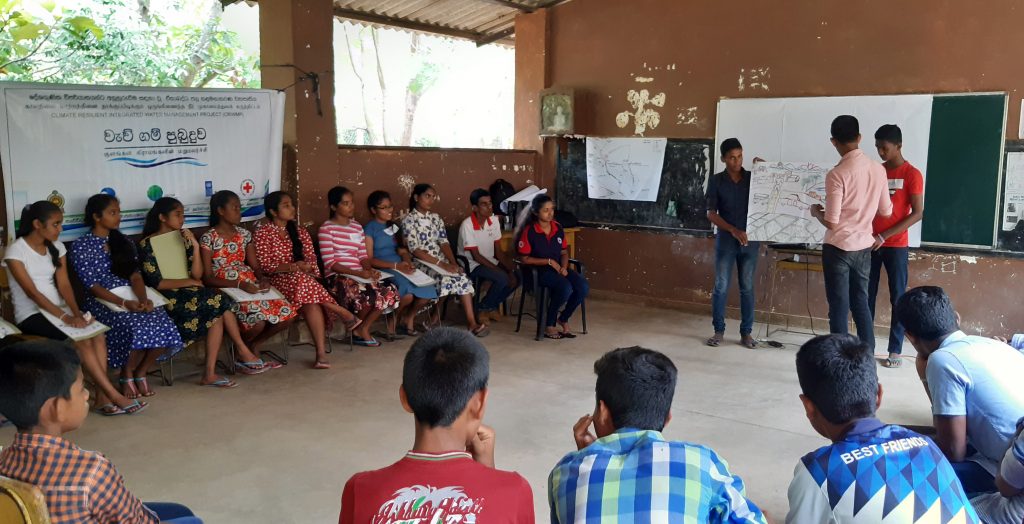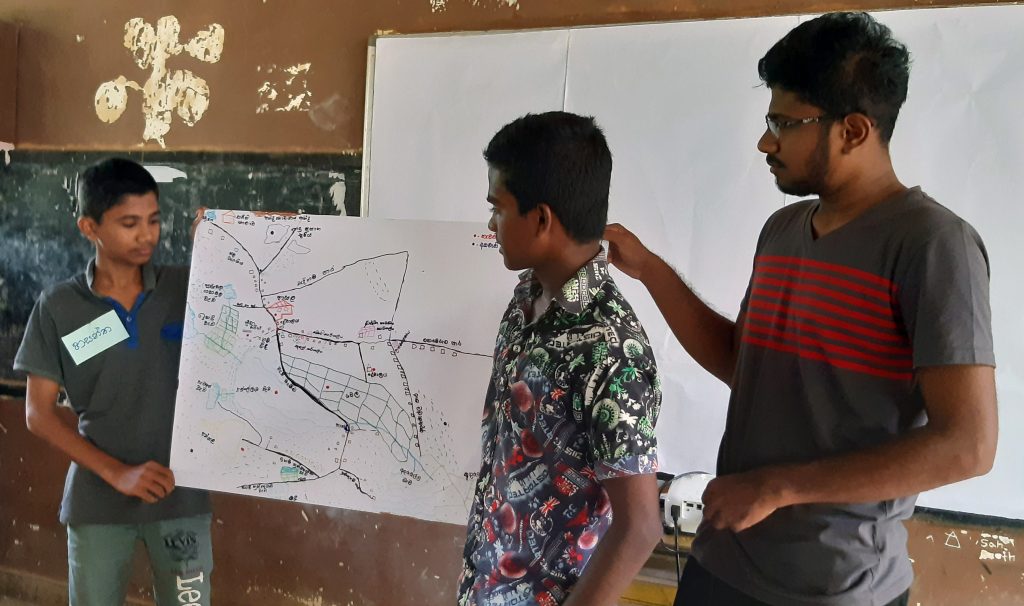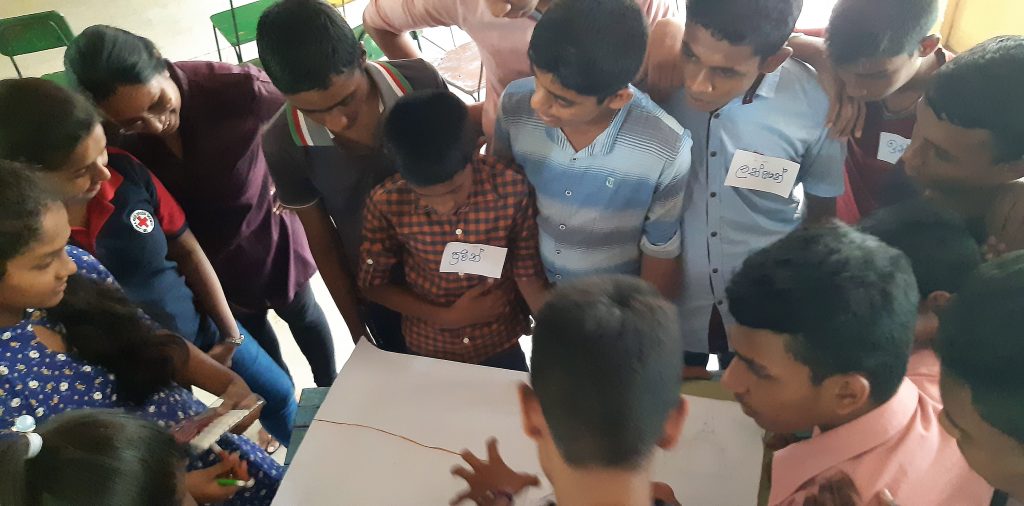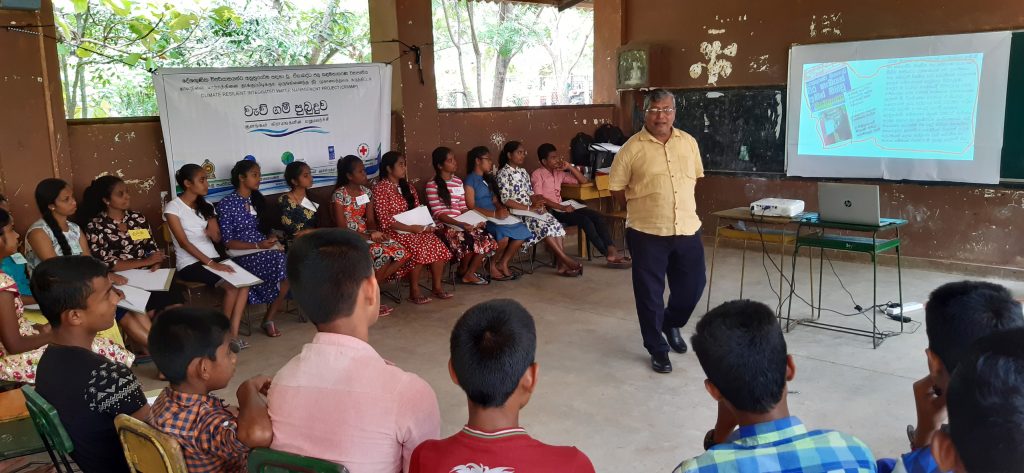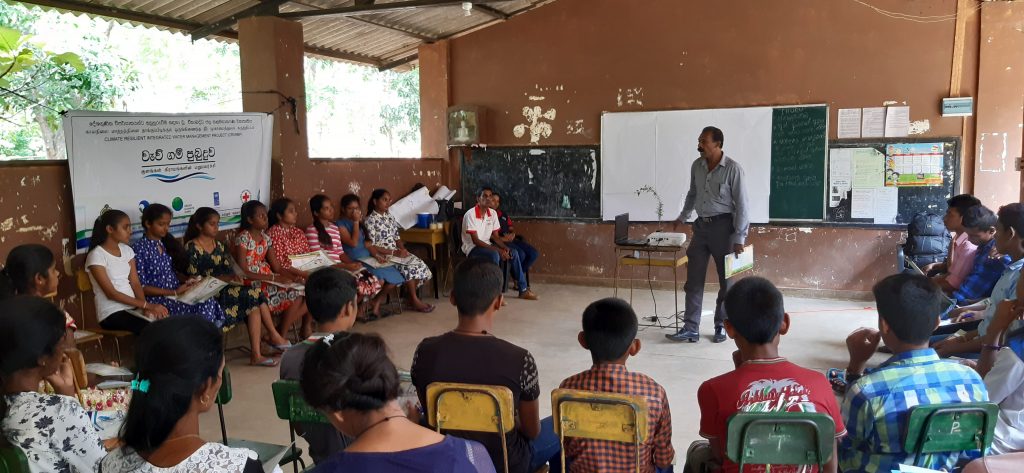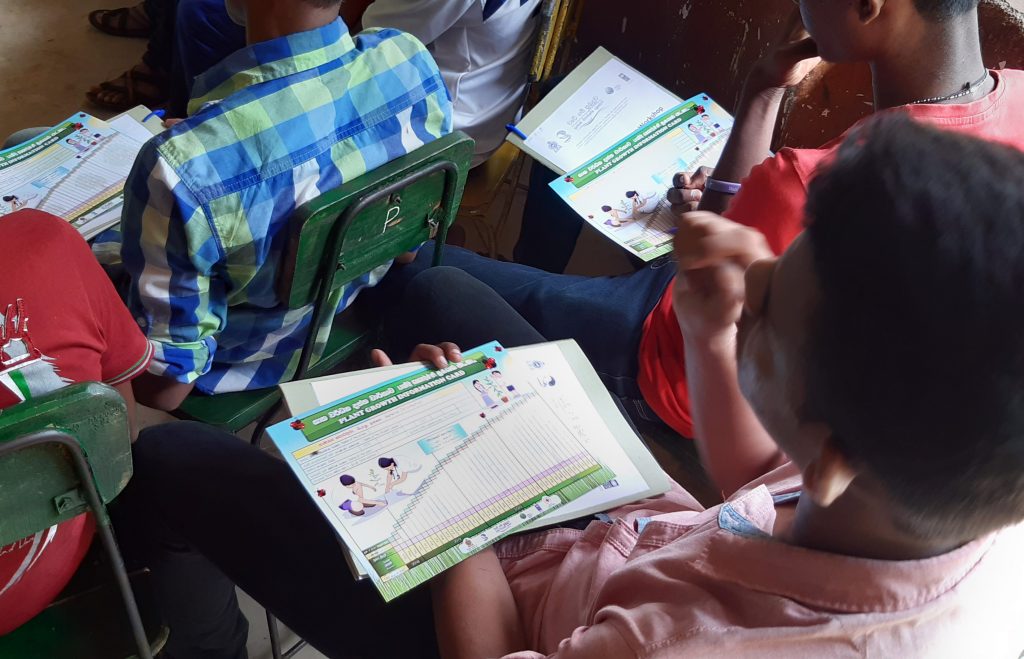Youth Engagement on climate resilient activities and acting as agents of behavioural change
By Ganga Kariyawasam & Zafran Packeerally (22 Oct 2019) – Climate change is real, it is happening, and the world is experiencing its consequences. It is every one of us to act upon protecting the environment, especially the youth, as they are the future of this world.
Therefore, it is crucial that the youth understand climate change issues, the ecosystem surrounding them, as well as ancient irrigation systems, if they are to actively and meaningfully participate and influence development into the direction of climate-resilient activities.
Sri Lanka, Red Cross Society, mobilize communities towards climate resilience through initiatives such as tree planting, small tank renovations, and climate-smart agriculture and a series of awareness programs, education programs, field training, and exposure visits.
Recently over 40 youth, including students of Hunugallewa Junior School in the Kurunegala District, gathered to participate in an innovative initiative. These youths are the residents of Hunugallewa village, Ehetuwewa, in the Anguruwwella cascade. The Sri Lanka Red Cross Society organized this creative session under the “Wewgam Pubuduwa” or the Climate Resilient Integrated Water Management Project (CRIWMP). The objective of this session was to make aware of the village youth on climate change and its adverse effects in their lives and to mainstream them in the development process as well.
Our Red Cross Youth as behavioural change (YABC) trainers took the lead and made them engaged in several innovative exercises, which enhances their creativity and critical thinking skills. Participants were prompted to think about their relationship to the village, their ownership, re-think and understand the bond between them & their village.
They were facilitated to map their village and how the village to be in the future and then to come up with suggestions to transform the present village into an ideal village. This session was facilitated to identify places they like and dislike in the village and encourage them to turn those places into pleasant & eco-friendly. Youth learned on the cascade approach system and its importance through an interactive presentation by Dr. P.B. Dharmasena, Researcher & Consultant, Field Crops Research & Development Institute, Mahailluppallama as well.
The event concluded with a tree planting activity followed by an introduction of a plant growth chart. Each participant planted a sapling and tagged the plant with their name in it. They will monitor and record the growth of their plant until they are out of the school and will eventually be handed over to the next batch of students until it grows for three years.
Red Cross YABC trainers, Dr. P.B.Dharmasena, Community mobilizing officers, School principal, and several project staff attended the sessions as well.
About the Climate Resilient Integrated Water Management Project
The Sri Lanka Red Cross Society mobilizes farmer communities in the dry zone to adopt climate-resilient agricultural activities. The Climate Resilient Integrated Water Management Project is a 7-year project aimed at strengthening the resilience of Smallholder Farmers in Sri Lanka’s Dry Zone to climate variability and extreme events.
This project funded through a grant received from Green Climate Fund (GCF), while the Government of Sri Lanka has committed to co-finance the activities identified under the project as well. Ministry of Mahaweli Development and Environment, also an implementing partner for this project with the technical assistance of the United Nations Development Programme (UNDP) and work with several government institutions to deliver the project outputs and activities while measuring the impact.
